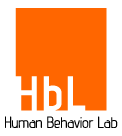Practicing this soft skill can “make you a genius”
You probably know someone who seems to pick up new talents without even practicing them. They can point out a bad friend or sketchy situation almost instantly.
That’s because they’re really good at observation — a skill that can make you highly successful, according to Talia Fox, the CEO of executive consulting firm KUSI Global and an ex-Harvard University fellow. She picked up the skill herself early in life after struggling in school, she says.
“I had some learning issues when I was young, and I had to work really hard to try to be smart.” “So I had to become an exceptional listener [and] really pay attention to every word … [Now] I can go in a room with some of these big organizations and everybody’s always like, ‘How did you know that?’”
Observation lies at the base of some of today’s most in-demand soft skills, including adaptability, problem solving, critical thinking and effective communication. You need to be curious and get rid of distractions to do it well, says Fox.
How to become a better observer
Practicing the habit of watching, listening and making connections will help you contribute to your workplace at a higher level, Fox says.
But cultivating good observation skills requires more than just listening with your ears, according to a 2015 Massachusetts Institute of Technology case study: It takes focus and attention to detail.
You can become a better observer by following a few best practices, according to job platform Indeed. Identify what you need to observe, get rid of distractions — like your phone — so you can listen attentively, and when you hear or see something interesting, make a plan to follow up and learn more about it.
Say you’re in an all-staff meeting, and your CEO announces a plan to integrate artificial intelligence into your company’s daily operations. If that’s a topic you’re interested in, make sure you pay attention to the ensuing conversation, as the CEO explains the plan and you and your coworkers start discussing it.
Your job isn’t done once that conversation ends, because observation doesn’t have to just be a passive skill. You could research the AI tool your CEO mentioned, familiarize yourself with how to use it effectively and discuss that with your boss, for example.
Most importantly, you should observe because you have a genuine curiosity about what’s going on around you, not just because you want to benefit from a person or situation, says Fox. That’s what separates highly intelligent people from others, she adds.
“Most people only pay attention if they have a pre-meditated reason. [For example], if I’m talking to you, in order for me to really observe and watch you, I have to feel like there’s something in it for me,” she says. “A lot of people just observe the things that they feel are going to benefit them.”
Regularly practicing your observation skills will “instantly” make you more conscious about your environment and lead you to new conclusions, says Fox. “It literally will turn you into a genius.”
We specialize in High-performance Human Behavior training
Working on the humans that grow your business | High-performance Human Behavior training | I teach corporations & employees how to hack into humans using Behavior & Persuasion. I work with Pharma | Finances| Banking |Insurance| Sales| AI – Language & Behavior Economics
